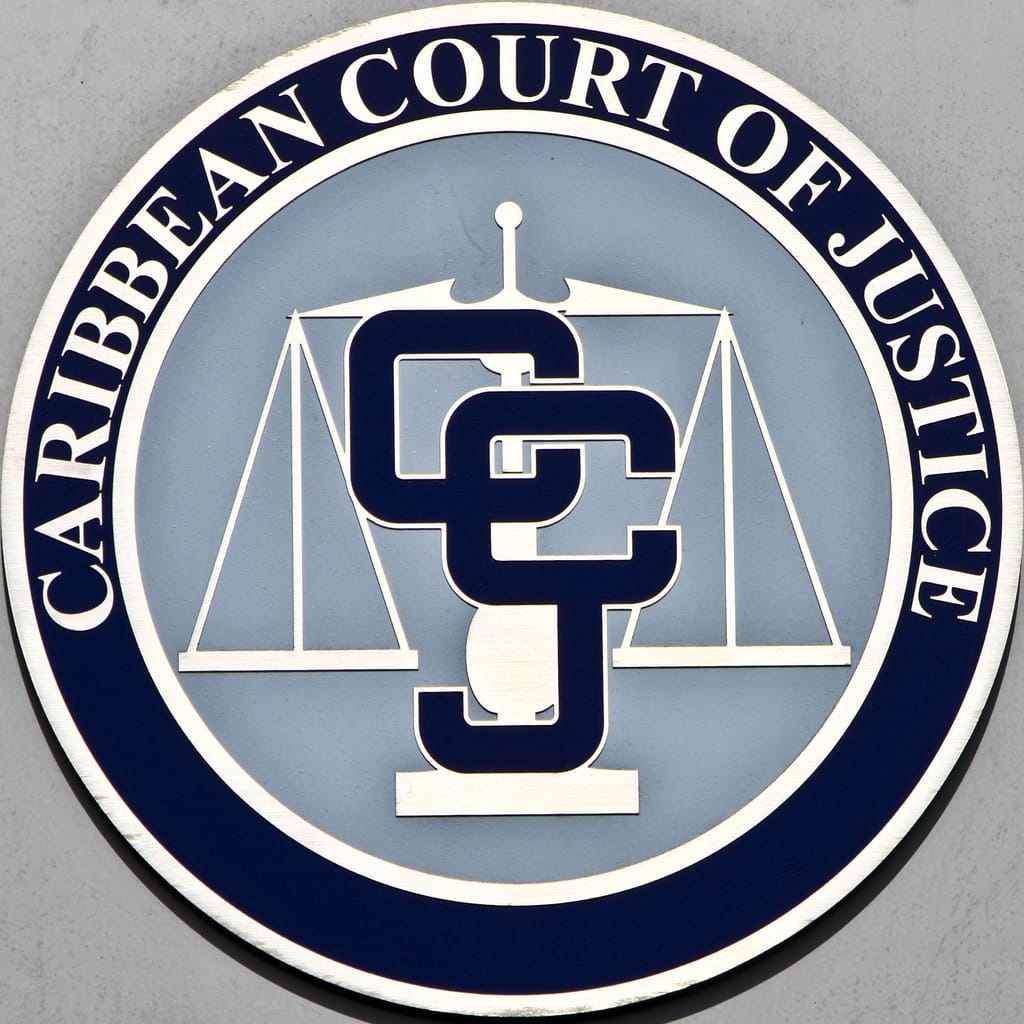
CLICK HERE TO JOIN OUR WHAT’S APP GROUP
Today, Wednesday, 16 April 2025, the Caribbean Court of Justice (CCJ) celebrated its milestone 20th anniversary with an Interfaith Service of Reflection and Prayer at the Queen’s Hall, Port of Spain, Trinidad.
The ceremony attended by Her Excellency Christine Carla Kangaloo ORTT, President of the Republic of Trinidad and Tobago, brought together members of the Judiciary of Trinidad and Tobago, representatives from the Government of the Republic of Trinidad and Tobago, representatives of various faiths from the Inter-Religious Organisation, regional stakeholders, members of the diplomatic corps, the legal fraternity, commissioners of the Regional Judicial and Legal Services Commission, and former and current Judges and staff of the Court.
The event served as a moment of gratitude and reflection on the Court’s journey over the past two decades.
Delivering the address at the event, Ms Sophia Chote SC, Attorney-at-Law and Commissioner of the Regional Judicial and Legal Services Commission commended the Court stating ‘the achievements of the CCJ are the achievements of our region.
We continue to have Commissions which are responsible, and which ensure that the CCJ’s Bench is populated only with the best.
The Judges themselves are acutely aware of their responsibility to the region and discharge their duties with diligence and integrity.
The Registrar and her staff and other arms of the organisation continue to perform their duties with responsibility and innovation. The educational arm of the CCJ has had valuable outreach with judges, lawyers, and law students throughout the region.’

When asked about the significance of this particular milestone anniversary, CCJ President, the Honourable Mr Justice Adrian Saunders noted ‘today is a time for reflection and giving thanks.
For the past 20 years, the CCJ has upheld the rule of law, safeguarded rights, and strengthened Caribbean jurisprudence.
The Court has been a shining example of Caribbean ingenuity, with its innovative funding arrangement, in the form of the CCJ Trust Fund, and, through the establishment of the Regional Judicial and Legal Services Commission, its insulation from external interference in its recruitment practices.
This anniversary is not just a celebration of 20 long years, but also of our enduring commitment to delivering accessible, fair, and efficient justice to the people and states of the Caribbean. I
t is a privilege and an honour to serve the people of this region, and we, the Judges and staff of the Court, are incredibly grateful to have had that opportunity over the past 20 years.
We look forward to doing so for the next 20 years and beyond.’
The CCJ was established in 2005 to serve as a final court of appeal for the region and to determine any matters arising out of the interpretation and application of the Revised Treaty of Chaguaramas which established the CARICOM Single Market Economy.
In the last 20 years, the Court has heard over 400 matters in its Appellate Jurisdiction and 37 matters in its Original Jurisdiction.
In the Appellate Jurisdiction, a number of its landmark cases have concerned issues of constitutional rights, while in the Original Jurisdiction, the Court has decided on matters which include the imposition or failure to impose applicable tariffs, economic policies that affect regional trade, or disputes where CARICOM nationals are denied their right to live, work, or travel freely.
The CCJ has also developed a reputation for innovation in the administration of justice.
It was one of the first courts in the region to livestream matters and conduct virtual hearings, having started doing so from as early as 2008.
As a leader in technology in the region, the Court is an early adopter of the use of artificial intelligence incorporating it as a tool for legal research.
In addition to justice administration, the CCJ’s work with affiliate organisations such as its educational arm, the CCJ Academy for Law and the Caribbean Association of Judicial Officers (CAJO) has also proven to be beneficial to the region.
Recently, through the efforts of the Academy, chaired by CCJ President-designate, the Honourable Mr Justice Winston Anderson, the Needham’s Point Declaration on Criminal Justice was adopted and since then, has been cited in over 50 matters throughout the region.
While the CAJO, chaired by CCJ Judge, the Honourable Mr Justice Peter Jamadar, provides judicial training for judicial officers throughout the region to support effective and efficient justice delivery in the region.
The Interfaith Service is just one of several activities that will be held during the Court’s year-long celebration.
As part of the commemorative activities, the Court will host a public exhibition showcasing a range of artefacts and archival material that chronicle its two-decade journey which will be open to the public later this year in Port of Spain.
The 8th Biennial CCJ Academy for Law Conference will also be held in November under the theme ‘The CCJ at 20: Reflections on Caribbean Jurisprudence.’
Interested persons can view the live stream via our YouTube channel at the link: Interfaith Service of Prayer and Reflection.
CLICK HERE TO JOIN OUR WHAT’S APP GROUP
CLICK HERE TO JOIN OUR WHAT’S APP GROUP
CLICK HERE TO JOIN OUR WHAT’S APP GROUP
CLICK HERE TO JOIN OUR WHAT’S APP GROUP
CLICK HERE TO JOIN OUR WHAT’S APP GROUP
CLICK HERE TO JOIN OUR WHAT’S APP GROUP
Advertise with the mоѕt vіѕіtеd nеwѕ ѕіtе іn Antigua!
We offer fully customizable and flexible digital marketing packages.
Contact us at [email protected]

















happy anniversary to the CCJ!
Big up CCJ!
It’s good to see regional institutions lasting this long. Congrats to the CCJ!
The status of the CCJ is an indictment on the way Caribbean people feel about the judicial system.
It may not be an indictment of how they feel of the judges as individuals.
After 20 years only three countries have made the court their final court of appeal.
Although the court is head quartered in Trinidad and Tobago, Trinidad and Tobago has not made it their final court of appeal.
The message is simple.
We do not trust either the judges or the court system.
While many have used history and played the race card they have failed to convince their populace to acceed to the court.
They have been unsuccessful in convincing the peope to cut ties with the Privy Council.
If something is not broken down do not attempt to fix it.
I personally do not wish any of the other islands join that CCJ.
The Privy Council has served us well.
The judges on that court cannot be influenced.
The judges on the CCJ are not adequately insulated from the political directorate.
It raises doubt on the level and quality of judgement that is possible.
Some years ago when Sir Dennis Byron was the president of the court he was due to deliver a judgement on a particular day. On the day when he was supposed to deliver the judgemebt he was meeting with the political heads and the judgement had to be delivered by a subordinate judge.
What reason could the president have meeting behind closed door with politicians?
We have the most corrupt and rotten politicians in the world in the Caribbean.
The present president retired from the ECSC to take up the position.
How did he know that he would have been successful that he retired from his position of Chief Justice of the ECSC.
Those coincidence are too many for one to place his trust in the system.
I wish those islands who have accepted the CCJ could review that decision.
Unfortunately it is too late.
Comments are closed.